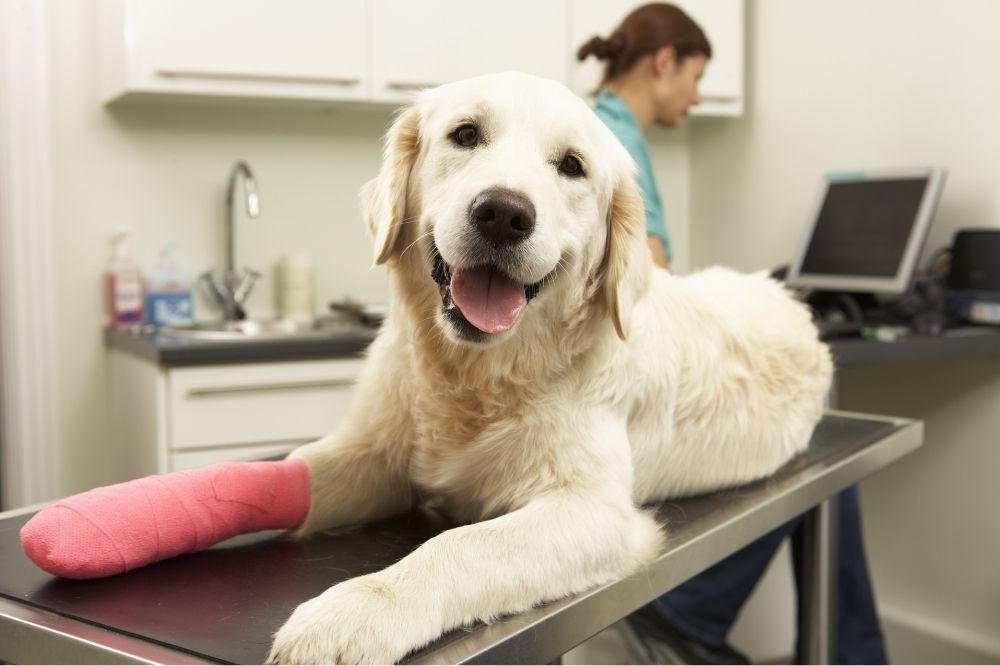Pet General Surgery
Uptown Pet Clinic is more than a veterinary clinic; it’s a trusted partner in ensuring the health and happiness of the Dauphin’s cherished pets.
Uptown Pet Clinic stands out as a premier veterinary facility offering a comprehensive range of services, specializing in surgery.
Pet General Surgery
Our state-of-the-art surgical suite provides for the performance of various surgical procedures. At Uptown Pet Clinic, the team of experienced veterinarians combines expertise with a genuine love for animals. Pet owners can rest assured that their beloved companions are in the hands of professionals who prioritize pet care’s medical and emotional aspects. The clinic’s commitment to compassionate service extends to every facet of its practice, ensuring a positive and reassuring experience for pets and their owners.
Uptown Pet Clinic specializes in pet general surgery, addressing various conditions that may require surgical intervention. Whether it’s a routine spaying or neutering procedure, tumor removal, or emergency surgery, the clinic’s surgical team is prepared to handle diverse cases with precision and care. The clinic emphasizes thorough pre-operative assessments and personalized post-operative care plans to ensure the best possible outcomes for every patient.
General Surgical FAQs
Many people have questions about various aspects of their pet’s surgery, and we hope this information will help. It also explains the decisions you will need to make before your pet’s upcoming surgery.
Is the anesthetic safe?
Today’s modern anesthetic monitors have made surgery much safer than in the past. Here at Uptown Pet Clinic, we thoroughly examine your pet before administering anesthetics to ensure that a fever or other illness won’t be a problem. We also adjust the amount and type of anesthetic used depending on your pet’s health. The handout on anesthesia explains this in greater detail.
Pre-anesthetic blood testing is important in reducing the risk of anesthesia. Every pet needs blood testing before surgery to ensure the liver and kidneys can handle the anesthetic. Even apparently healthy animals can have serious organ system problems that cannot be detected without blood testing. If there is a problem, it is much better to find it before it causes anesthetic or surgical complications. Animals with minor dysfunction will handle the anesthetic better if they receive IV fluids during surgery. Surgery can be postponed if serious problems are detected until the problem is corrected.
We offer three levels of in-house blood testing before surgery, which we will review when you bring your pet in. Our doctors prefer the more comprehensive screen because it gives them the most information to ensure your pet’s safety. For geriatric or ill pets, additional blood tests, electrocardiograms, or X-rays may also be required before surgery.
Surgery must be done on an empty stomach to reduce the risk of vomiting during and after anesthesia. You will need to withhold food for at least 12 hours before surgery. Water can be left down for the pet until the morning of surgery.
Will my pet have stitches?
For many surgeries, we use absorbable sutures underneath the skin. These will dissolve on their own and do not need to be removed later. Some surgeries, especially tumor removals, do require skin stitches. With either type of suture, you will need to keep an eye on the incision for swelling or discharge. An E-collar is recommended to prevent your pet from licking or chewing at their incision. If there are skin sutures, these will usually be removed 10 to 14 days after surgery. You will also need to limit your pet’s activity level for 7 to 10 days, and no baths are allowed for the first ten days after surgery.
At what age can I have my pet spayed or neutered?
Spaying or neutering can be done at approximately six months of age. Your pet is given an exam prior to surgery to help determine whether your pet is healthy enough to undergo the surgical procedure. Current vaccinations are required at the time of surgery. Also, a pre-anesthetic blood screen is recommended prior to undergoing anesthesia and surgery.
Will my pet be in pain?
Anything that causes pain in people can be expected to cause pain in animals. Pets may not show the same pain symptoms as people; they usually don’t whine or cry, but you can be sure they feel it. Pain medications needed will depend on the surgery performed. Major procedures require more pain relief than things like minor lacerations.
For dogs, we may recommend an oral anti-inflammatory the day after surgery and several days after to lessen the risk of discomfort and swelling. We use newer medications, which are less likely to cause stomach upset and can be given even on the morning of surgery.
Because cats do not tolerate standard pain medications such as aspirin, ibuprofen, or Tylenol, we are limited in what we can give them. Recent advances in pain medications have allowed for better pain control in cats than ever before. We administer a pain injection 10 minutes prior to surgery. After surgery, pain medication is given on a case-by-case basis. Any animal that appears painful will receive additional pain medication.
Injectable pain medications may also be used after surgery on both dogs and cats.
What other decisions do I need to make?
While your pet is under anesthesia, it is the ideal time to perform other minor procedures, such as ear cleaning or implanting an identification microchip. If you would like an estimate for these extra services, please call ahead of time. This is especially important if the person dropping the pet off for surgery is not the primary decision-maker for the pet’s care.
When you bring your pet in for surgery, we will need 5 to 10 minutes of time to fill out paperwork and make decisions on the blood testing and other options available. When you pick up your pet after surgery, you can also plan to spend about 10 minutes reviewing your pet’s home care needs.
We will call you before your scheduled surgery appointment to confirm the time you will be dropping your pet off and to answer any questions you might have. In the meantime, please don’t hesitate to contact us with any questions about your pet’s health or surgery.

